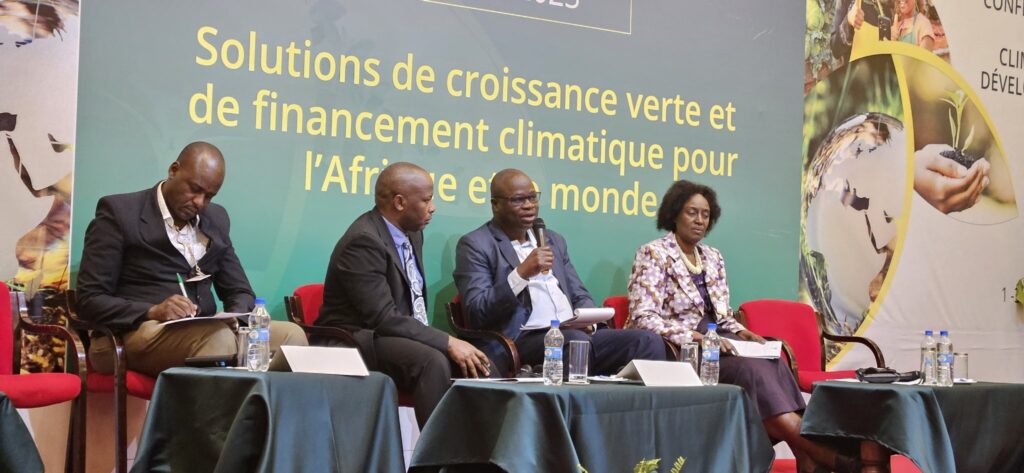The 28th Conference of the Parties (COP28) held annually under the UN Framework Convention on Climate Change (UNFCCC), has this year convened against the backdrop of escalating climate concerns and burgeoning global initiatives aimed at curbing environmental degradation.
COP summits serve as crucial platforms for nations, organizations, and stakeholders to converge and strategize on climate actions and policies.
During today’s significant side event the stage was set for discussions centered on leveraging the role of Multilateral Development Banks (MDBs) in fostering climate resilience and sustainable solutions. Representatives from various MDBs congregated to deliberate on instrumental approaches toward climate initiatives, encapsulating the broader goals outlined by the participating nations.
Al Hamndou Dorsouma, Acting Director of the climate change and green department at the African Development Bank (AfDB), highlighted MDBs’ collective efforts in co-financing projects at the country level. Emphasizing the imperative to tackle climate change comprehensively, Dorsouma pinpointed adaptation as the primary focus for African nations.
“In our roles as MDBs, we recognize the urgent need for enhanced contributions to combat climate change,” stressed Dorsouma. He emphasized the centrality of adaptation, citing it as the cornerstone of action for African countries.
Furthermore, he underscored the AfDB’s proactive role in supporting 46 investment projects across 36 nations. Notably, Dorsouma highlighted the launch of the Country Adaptation Investment Compacts with Kenya, Tanzania, Nigeria, Mozambique, and Senegal. These compacts aim to bolster country-led adaptation initiatives, leveraging partnerships with other MDBs and stakeholders for impactful climate action.
Meanwhile, Graham Watkins, representing the Inter-American Development Bank (IDB), echoed sentiments of collaborative efforts in Latin America and the Caribbean. “Our concerted actions on the ground, combined with joint initiatives alongside entities like the EIB and AFD, signify the momentum in these regions,” Watkins affirmed.
Within these regions, countries including Colombia, Costa Rica, Chile, Uruguay, Dominican Republic, and Barbados have been actively formulating country climate and development frameworks. Watkins highlighted the IDB’s instrumental role in providing technical assistance to Peru and Brazil in their National Determined Contributions (NDCs) and climate strategies.
The dialogue also shed light on the pivotal role of local banks within country-level climate plans after one of the participants asked the significance of local banks within country-level climate plans. “In the context of plans in Bangladesh or Africa, what’s your view on the role of local banks? Have they shown interest in participating in these platforms?”
“Our initiative supports local banks in formulating investment strategies and identifying green projects, with active initiatives already underway in countries like Morocco and Egypt,” Watkins highlighted, signaling an intent for expansion and collaboration among MDBs in this initiative.
These discussions underscore the intricate, multi-faceted approach required for effective climate action‚ÄĒlocal bank engagement, regional collaboration, and resource mobilization. They highlight the resolute commitment of MDBs to collective global action, showcasing innovative and collaborative strategies to confront and address the challenges posed by the evolving climate crisis.
MDBs are working together on climate and development action building on their mandates, country relationships, operating models, and expertise. Reflecting the interconnection of climate, environmental and social issues, this includes work MDBs to accelerate socially inclusive and gender responsive climate action. To further scale-up MDBs climate and development action it requires a major step-change which can be achieved by shifting from an individual project approach to a programmatic approach structured around country-driven platforms with clear, ambitious, and monitorable targets.



Can you be more specific about the content of your article? After reading it, I still have some doubts. Hope you can help me.